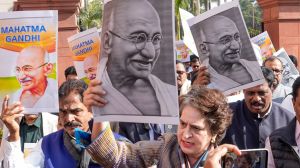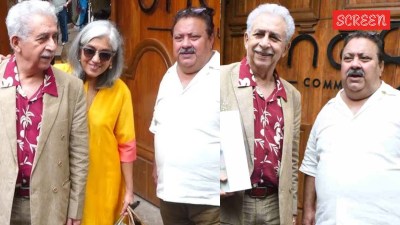Delhi High Court refuses to direct for recording and archiving of Delhi HC live-stream proceedings
The Delhi High Court was dealing with a petition seeking directions to ensure compliance with the Supreme Court and Delhi High Court directions regarding live streaming and video recording of court proceedings.
 The court was dealing with a petition by Bharat Bhushan Sharma, who had referred to Supreme Court-formulated model rules for live-streaming of court proceedings. (File photo)
The court was dealing with a petition by Bharat Bhushan Sharma, who had referred to Supreme Court-formulated model rules for live-streaming of court proceedings. (File photo)The Delhi High Court recently refused to issue directions for the retention of recorded court proceedings, noting that such “omnibus directions” could undermine “the quality, confidentiality, and security of judicial processes.”
The court was dealing with a petition by Bharat Bhushan Sharma, who had referred to Supreme Court-formulated model rules for live-streaming of court proceedings, as well as a January 2023 circular by the Delhi High Court, which provided detailed guidelines regarding archival, access, and retention of recorded proceedings. Rule 7 of this notification stipulated that court recordings must be archived, and access to them must be granted under prescribed procedures.
Sharma contended that the notification “has not been effectively implemented,” relying on an RTI response from November 2024 that said that no archival data or recordings of court proceedings exist, and that live streaming is limited to Court No 1. Sharma contended that the lack of video recording and live-streaming of proceedings has allowed the plaintiff in a matter concerning him “to mislead the Court and obtain favourable orders based on false submissions.”
He also relied on a December 2024 reply to an unstarred question in Rajya Sabha, where the Ministry of Law and Justice said Rs 112.26 crore had been earmarked under eCourts Project Phase-III for the establishment of Courtroom Live Audiovisual Streaming System (CLASS).
Justice Sachin Datta, dismissing Sharma’s petition while relying on an earlier Delhi HC verdict, recorded in an order on March 28, “…this Court, on the administrative side, has been actively engaged in addressing the logistical and infrastructural challenges associated with the initiative to introduce/expand live streaming of Court proceedings. However, it has also been recognised that there are infrastructural challenges associated with expanding this initiative. Also, importantly, the initiation/expansion of live streaming must be preceded by adequate preparation so as to ensure that the quality and security of judicial proceedings is not compromised”.
“This is particularly in the light of recent concerns arising on account of misuse of live stream videos by content creators on social media. As such, it is imperative that necessary practical assessments are made and safeguards are introduced….the technical committees of this Court are actively engaged in the said exercise. It has also been rightly noted that imposing rigid timelines without regard to technical challenges and resource allocation would not be prudent… Issuance of any omnibus directions (as sought by the petitioner), regardless of the technical issues and the safeguards that are required to be put in place, could have unintended consequences, potentially undermining the quality, confidentiality, and security of judicial processes,” said Justice Datta.







